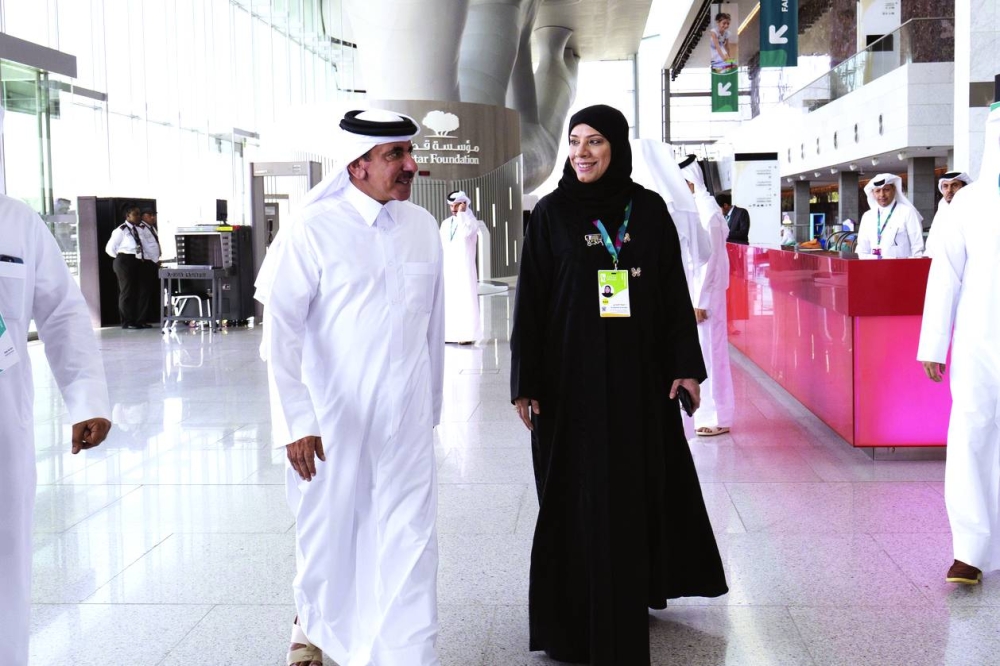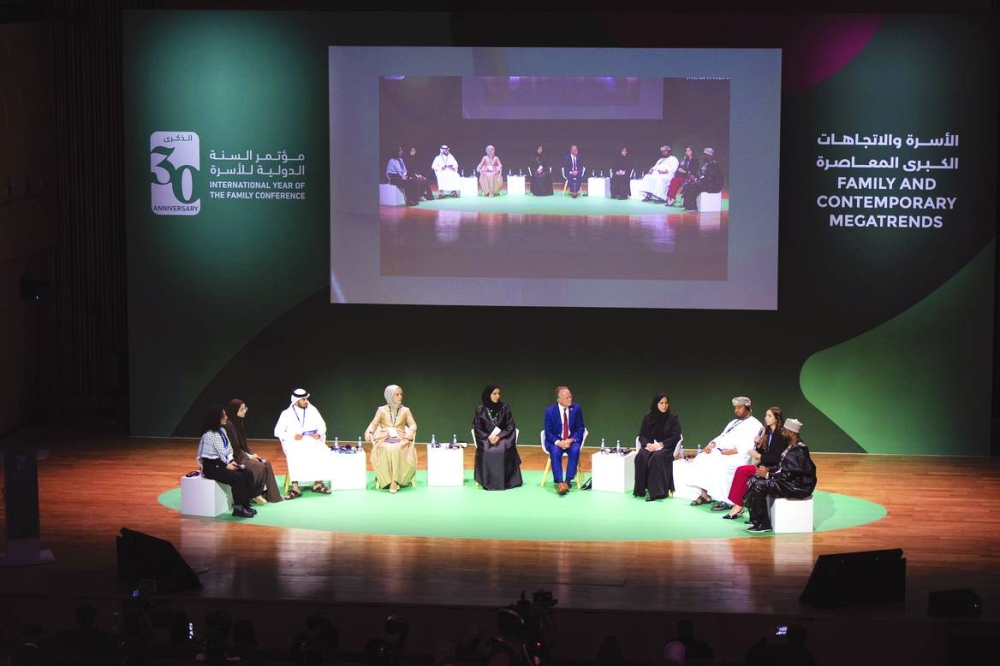Policies to protect families in countries affected by conflict, the global impact of population decline, and striking a balance between work and family life were placed in focus on the opening day of the 30th Anniversary of the International Year of the Family Conference on Family and Contemporary Megatrends Wednesday.
Organised by Qatar Foundation’s (QF) Doha International Family Institute ( Difi), the two-day conference brought together experts and policymakers from around the world to explore key global megatrends affecting families, policies and programmes that strengthen the family’s place at the heart of society.
In a session titled ‘Shattered Lives: The Impact of War and Conflict’, Dr Nour Naim, executive director of AI Minds Academy, spoke about the targeted destruction of the middle class and education in Gaza – where she is originally from, and where her father continues to work as a frontline doctor despite being injured.
She explained that the situation in Gaza is dismantling the connection between families and their homeland, forcing them to migrate to different corners of the world, but said: “Despite the ongoing tragedy, family bonds have reached a peak, with families making decisions together about displacement and their fate.”
"The strength of the Gazan community lies in these tight family ties. Families are moving into each other’s homes, living together as if they were one family. These values are the foundation of society in Gaza. Unlike what typically happens in wars, there is a strong civil society with youth volunteers working to support poor families and assist with nursing care.”
Speaking in a discussion on ‘Work-Family Reimagined’, Dr Maimoonah Khalil al-Khalil, secretary general, Family Affairs Council, Saudi Arabia, highlighted the main challenges and opportunities facing working families in the country, saying: “Research has shown that when both parents are both working and away from home for long hours, it affects fertility, marriage age, and divorce rates, so initiatives must be introduced to ensure that women are active in the workforce, but also to ensure that we are practicing the role of parenting well.”
The panel ‘Saving the Earth, Securing the Family’ explored the impact of climate change on families, focusing on the effects of climate-induced migration, food security, water scarcity, and eco-anxiety. “Climate change is multidimensional, and we need to deal with it in a holistic manner,” Mahinur Ozdemir Goktaş, Minister of Family and Social Services, Turkiye, said.
Dr Mohammed Behnassi, senior environmental expert at the Economic, Social and Environmental Council, based in Rabat, Morocco, highlighted three interconnected climate change phenomena affecting families. “First is climate-induced displacement; second is food insecurity, which is worsened by climate change; and finally, war insecurity,” he said. “These interrelated challenges are triggering what we call climate migration – migration that is triggered by environment issues and is amplified by water stress, flooding, desertification, and deforestation.”
Speaking at the conference on the issue of declining fertility rates, data scientist and demographer Stephen Shaw said: “Four out of five women who remain childless for life were planning to have children.
“Life is complicated – ‘not yet’ and ‘I’m not ready’ are the most common phrases I heard in every single country I visited during my research. I believe society needs to help women have children, as some are waiting for the right time and others are searching for a good partner.”
During a session titled ‘Family Time X Screen Time: Finding the Right Balance’, Abeer al-Khalifa, president of Pre-University Education, QF, emphasised the importance of co-operation between families and schools to ensure there is a positive environment for students using technology.
“Parents face many challenges, including the digital trust gap, as there is a big difference between parents and children in terms of their ability to use various technologies or electronic platforms,” she said. “The second challenge is how to differentiate between screen time for education and entertainment.”

HE the Minister of Transport Jassim Saif Ahmed al-Sulaiti and Difi executive director Dr Sherifa Noman al-Emadi at the conference Wednesday.

A panel discussion at the conference.
